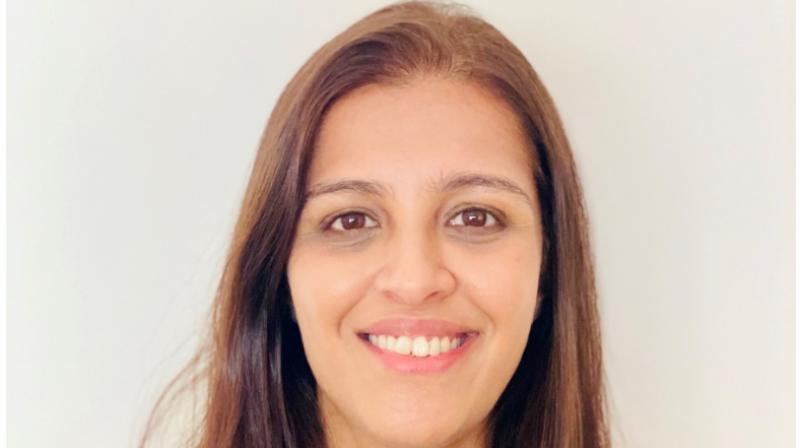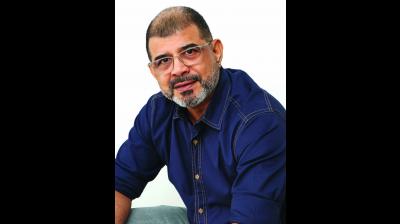Mountain Dew has recently announced a collaboration with the show Kaun Banega Crorepati (KBC) for the campaign, ‘Yeh Khel Gyaan ka hai, Par Jeeta Himmat Se Jaata Hai' (this game is about knowledge but is won on the back of courage).
Through this partnership, the brand is offering viewers a chance to secure a wildcard entry into the show’s ongoing season.
Manifest caught up with Akankshaa Dalal, category lead, Mountain Dew, PepsiCo India, to know more about this recent collaboration, the brand’s overall marketing strategy, the role of influencers and more...
What was the reason behind this partnership with KBC?
It started with thinking about how can one of PepsiCo's most iconic brands come together with a show which has had long-standing fandom. We felt that it would be a very beautiful fit because Mountain Dew has always stood for courage. And courage comes in various forms.
So, every time we think about KBC, people who are going there would be the core Mountain Dew TG because, in their hearts of hearts, they are strivers. Every time you watch a show like KBC, you hear stories of people and every story that you hear about is a ‘Darr Ke Aage Jeet Hai’ (there's victory ahead when fear is conquered) story. It's about people overcoming their challenges and making it to the show.
When they win that money there's a lot of tears of joy and sometimes just tears, when they lose because they come with a lot of high stakes. From that standpoint, we knew that it was an absolute organic fit. It is where you have an opportunity and then you show courage and you win and that led us to our campaign idea of ‘Yeh Khel Gyan Hai, Par Jeeta Himmat Se Jaata Hai’. To answer those questions, you need that himmat as it’s a reality show, it’s live and some people are in front of the camera for the first time. Sitting in front of a massive icon like Amitabh Bachchan is not easy and even to give the easiest of answers you require that additional courage. It is the perfect match and we are very excited to see where this goes.
For a brand that's traditionally seen to be edgy and adventurous. With this association are you looking to now appeal to a broader audience?
With this collaboration, we are not getting to be less edgy or less adventurous. Just seeing yourself in that hot seat is pretty much an adventure. It's not like the adventure of possibly being on a mountain or a bike.
Having said that, any which way we endeavour to reach a larger audience group because it's a fun beverage at the end of the day. We are looking to go to larger groups and be more inclusive. But this is not the first time that we have taken a different stance. We launched a campaign on Independence Day which was about ‘Freedom from Bias,’ where we had our first female lead protagonist. So, we are moving the conversation and talking to everybody.
How does the brand approach marketing in different regions? How does it adapt its strategy to suit local tastes and preferences?
I'll answer that question in two parts. One is really about how you go local on a single initiative. For instance, KBC is a pan-India show. It's as pan-India as Mountain Dew is. Being part of the Ganesh pandals in Maharashtra or something that's happening in Gujarat, or taking on retail outlets in Uttar Pradesh and doing something on the Wagah border, we're pretty much everywhere with the KBC campaign. Wherever the show goes, Mountain Dew goes. Outside of this particular campaign, from a taste standpoint, everybody loves Dew. So, we never had to think about the palate of India being different. It may be different when it comes to food but we've not seen that on beverages.
Having said that, we do have different communication sometimes like when we do something for Andhra Pradesh or Telangana, we work with Mahesh Babu. We have Hrithik Roshan who works across all of our HSM markets. We recently did a new ad which was only for Punjab. It was on hockey because they are such a big hockey state. Over and above that, for our other audiences including younger people and urban audiences, we explore what we are going to do on digital and newer formats. The whole pace and game is changing and we are doing everything that is required to keep up with it.
The brand has partnered with a diverse set of celebrities like Ranveer Allahbadia, Hrithik Roshan and Mahesh Babu. What qualities or characteristics does Mountain Dew look for when selecting brand ambassadors?
We have not put a filter on any particular characteristics. We have been in a very good space so far. Celebrities have been very gracious to want to work with the brand. So, it's been pretty good for us. And I don't think we want to put those filters because as a brand, we want to be as democratic as we can and just enjoy working with whichever celebrities we work with.
What role does influencer marketing play in Mountain Dew's marketing strategy? How does the brand leverage the use of social media to reach new audiences?
They bring relevance and reality because somewhere they are more relatable with the audience.
Earlier it used to be about wanting to follow what celebrities do, and while people still enjoy that, influencers bring a lot of realism and credibility.
People want to believe them a lot more. We work with them on account of two things.
Firstly, a lot of them are very happy to organically post stuff which helps us. They are excited about any of the work that we're doing. They come forward and they want to share our stuff. For the Parkour ad, for example, we did not invest any paid media behind it because we thought it was a very powerful ad and we would just run it and then a lot of influencers would themselves come on board and share the ad word. And that's exactly what happened. We were very happy to go to a few influencers who we thought could play a key role in promoting the ad and the campaign. And that's what we did.
In the celebrity bucket, we had Mahesh Babu, who loved the campaign and wanted to post it.
From a strategy standpoint, I think influencers have made it to a part of the 360 and we will continue to work with them. Some of them do add value to the brand.
What’s the marketing mix at Mountain Dew?
There are certain campaigns where the brand will be very heavy on TV and then balance it out with some amount of digital. For some campaigns, we end up being on digital only. Then there are some campaigns which are super local and will only run on local channels.Overall, it's a mix. We split our spending into TV, outdoor, digital, and social media, depending on campaign to campaign.
How does Mountain Dew incorporate cultural trends and relevance into its marketing strategy?
This goes back to the previous answer I gave you about Punjab. We know hockey is very big in Punjab. Ahead of the Olympics, we rolled out 'Darr Nu Daraa 2.0'. The ad campaign did well for us. That is a cultural example.
Now, talking about the urban audiences, they are very different. The Parkour film that we launched is a kind of cultural trend for the more evolved urban audiences. It would be far more relevant to them than maybe some other pieces of campaigns they would have seen.
How does the brand measure the success of its marketing efforts, and what metrics or KPIs do you focus on?
Multiple things. There are internal and external KPIs. Today, one has enough research available to tell how enjoyable the ad is or how believable or relevant it is.
Just before we launch any campaign, we do some consumer connect and speak to consumers. We get a pulse of what will work and what won’t. Other than that, when we see an impact on our overall brand metrics like 'top of mind', being a top choice preference for consumers, and sales being impacted. Those are the golden rules of marketing which don't change. We have been following it for many years and we will continue to do so because that's actually what keeps us on track.
The aerated drinks category had 'brand wars', with the different players taking each other on in advertising. That's sort of toned down now. Why do you think so?
I can't comment on why other organisations are not getting into this whole cola war space. But I think from our standpoint, it's very clear. We know what we want and we know our game and want to focus on the consumer versus what the competition is doing. I think that's an overall switch in the mindset where everybody now wants to be consumer-obsessed and trained by the consumer.

.gif)










